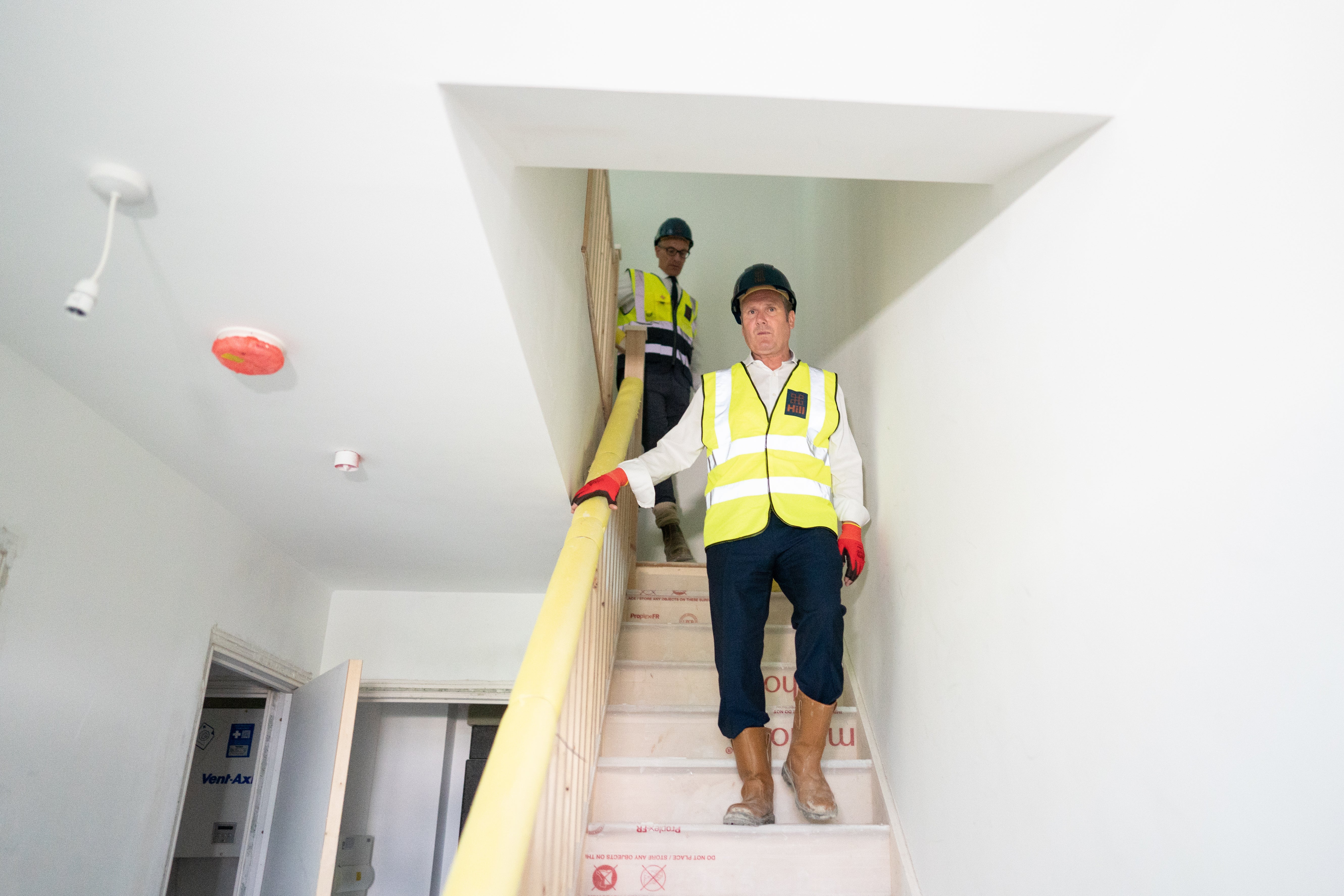Labour ‘underestimating cost of freezing energy bills by up to £8bn’
Full Fact claims the party’s £29 billion proposals do not take into account that people use more energy in the winter.

Labour appears to have underestimated the price of its plan to ease the cost-of-living crisis by up to £8 billion, analysis suggests.
Earlier this month, the party’s leader Sir Keir Starmer announced proposals for a six-month freeze on energy bills at the current £1,971 price cap, funded in part by expanding the windfall tax on oil and gas profits.
He said this would save the average household £1,000, contrasting Labour’s vision for extra support with the inaction of “lame duck” Prime Minister Boris Johnson and the “internal battle” of the Tory leadership contest.
However the charity Full Fact claims the party has not taken into account that people use more energy in the winter, causing it to underestimate the cost of freezing bills by at least £5 billion, or £340 per household.
Labour sources disputed Full Fact’s analysis and said the party had costed its plans based on consultation with industry regulator Ofgem.
Shadow chancellor Rachel Reeves defended the party’s proposals on Friday as Ofgem confirmed the next price cap would be £3,549 from October, saying she was “confident” about its figures.
Appearing on BBC Radio 4’s Today programme, she said: “I have spoken to both Ofgem and Citizens’ Advice about how direct debit payments are calculated.
“I’m confident about our numbers, but I am also confident most of all that the package we have set out will make an immediate and big difference to families and pensioners who are worried sick about what the autumn and winter are going to mean.”
She said that the party’s £29 billion proposals take into account the expected rise in the price cap, as well as predictions of the level prices might reach in January.
Ms Reeves added it wasn’t possible to set out a package of measures beyond April, due to the volatility of prices.
Meanwhile, findings from economists at the Institute for Fiscal Studies (IFS) think tank suggest the total cost of the plans could be even higher, at roughly £8 billion more than Labour’s projected price tag of £29 billion.
Full Fact’s analysis found that Labour’s plan to put energy bills on ice for six months seems to assume that the Government would need to cover exactly half the cost of freezing the price cap for a year.
However, it says that – for most customers – this does not take into account the fact that energy consumption is much higher in the winter.
The charity says people would be using more than half of the year’s energy during the six months the policy was in place – from October – while Labour’s £29 billion budget splits the cost of freezing the price cap for a year in two.
Labour's plan set out to tackle a serious problem, but the party’s 'fully funded' proposals do not add up in a way that would cover bills this winter
Looking at direct debit customers alone, and using Ofgem’s figures for domestic energy consumption in general, Full Fact estimates that the additional cost during the winter would add about another £5 billion to the plan’s price tag, or roughly £340 per household.
And the IFS found that the total price could be around £8 billion higher than billed.
Setting out the costings for its plan at the time it was announced, Labour said it would close a “loophole” in the levy on the profits of the energy companies announced in May, and backdate the start to January, which together with rising global prices would bring in £8 billion.
The party said £14 billion would come from other measures such as dropping the £400 energy rebate, and abandoning pledges made by the Tory leadership contenders.
And by keeping inflation down, it said it would reduce the Government’s debt interest payments by another £7 billion.
Will Moy, chief executive of Full Fact, called for politicians to “own up to their mistakes” if they wish to be trusted by the electorate.
“Labour’s plan set out to tackle a serious problem, but the party’s ‘fully funded’ proposals do not add up in a way that would cover bills this winter,” he said.
“When politicians fall short, we can demand better. Politicians must own up to their mistakes if they’re serious about earning voters’ trust.”
In comments released ahead of the announcement, Sir Keir said a “dramatic increase” in energy bills would be “devastating for people and businesses across the country”.
“Labour’s fully funded plan to freeze bills and save households £1,000 this winter is a simple matter of common sense and fairness,” he said.
“We will not allow oil and gas giants to make record profits from the suffering of ordinary families and businesses. It’s astounding the Government does not understand this.
“As well as acting to fix the immediate problem, Labour will also bring down bills in the long term by investing in sustainable British energy and insulating homes across the country.
“The fact the Government is absent at this time of national crisis is unforgiveable. Families and business owners are worried sick. Everyone is now feeling the harsh reality of the Tories’ failure.”
A spokesperson for the Department for Business, Energy and Industrial Strategy said: “We know the pressures people are facing with rising costs, which is why we have continually taken action to help households by phasing in £37 billion worth of support.
“We are giving a £400 discount on energy bills this winter and eight million of the most vulnerable households will see £1,200 extra support.
“While no Government can control global gas prices, over 24 million households are protected by the price cap which continues to insulate households from even higher prices.”
Bookmark popover
Removed from bookmarks